· DNA double helix model made of gum balls and candy boxes and wrappers Stock Photo Alamy Download this stock image DNA double helix model made of gum balls and candy boxes and wrappers BHM6T6 from Alamy's library of millions of high resolution stock photos, illustrations and vectors Doreen KonRoachSemiconservative Model In the semiconservative model of DNA replication, each of the two daughter molecules will have one old strand from the parental molecule and one newlymade strand Now using the colored DNA parental strands you have created and the gray nucleotides, model the semiconservative method of DNA replication 29Models of the structure of DNA revealed the molecule is made up of two strands of covalently linked nucleotides that are twisted around each other to form a righthanded helix In each strand, nucleotides are covalently joined to two other nucleotides (except at the very ends of a linear strand) via phosphodiester bonds that link the sugars via the 5' and 3' hydroxyl groups (panel b

Structure And Function Of Dna Microbiology
Model of dna molecule labeled
Model of dna molecule labeled-• DNA is carefully packaged in the nucleus to compact it, protect it, and control which parts of the DNA are turned on and off in different cells Part 1 – Building a DNA Molecule In this section, we will build DNA models in order to understand what a nucleotide is composed of, and how several nucleotides fit together into a DNA molecule 11411 · DNA Drag and Drop Shannan Muskopf November 14, This set of slides was designed for remote learning during the pandemic In regular circumstances, students would practice labeling DNA on paper and we would go over the images together I have also used neon markers where students draw their own double helix on their desks and label
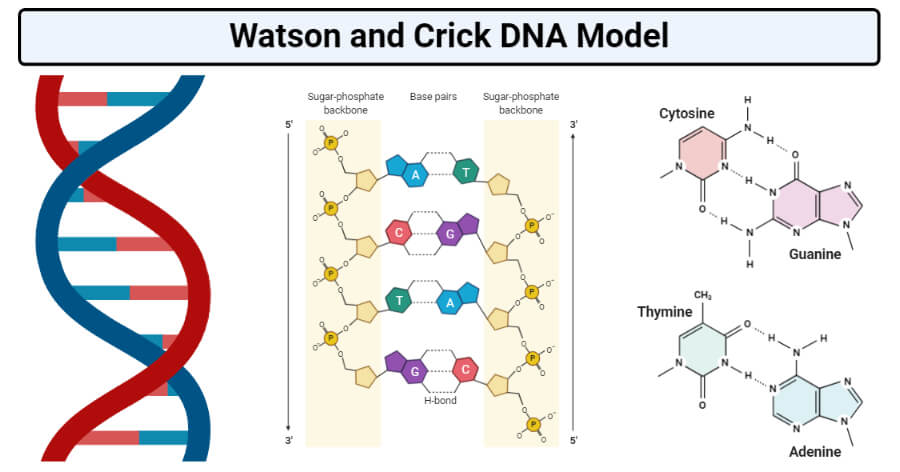



Watson And Crick Dna Model Molecular Biology Microbe Notes
Which feature of model 1 best illustrates how biological information is coded in a DNA a single nucleotide can be removed from a DNA molecule and replaced with an undamaged nucleotide Which of the four labeled bonds in Figure 1 could be broken to remove and replace the cytosine nucleotide without affecting the biological information codedTwo DNA kits are available to make either a 12layer (1 turn) or 22layer (2 turns) DNA model The models can be displayed on their stands, or unzipped into a ladder form to demonstrate the process of Replication A similar approach can be taken with the two RNA kits to model the process of Protein Synthesis known as Transcription0601 · Making DNA models can be informative, fun, and in this case tasty Here you will learn how to construct a DNA model using candy But first, what is DNA?DNA, like RNA, is a type of macromolecule known as a nucleic acid that contains the genetic information for the reproduction of life DNA is coiled into chromosomes and tightly packed in the nucleus of our cells
5) Construct the right side of your DNA molecule by putting together in sequence a cytosine, thymine, guanine and adenine nucleotideSee next page 6) Complete the left side of the DNA ladder by adding complementary nucleotides or nucleotides that fit Your finished model should resemble a ladder See next pageDNA Paper Model Activity Level Grade 68 Students will be able to 1 Identify the component molecules of DNA 2 Construct a model of the DNA doublehelix 3 Identify which bases are found in pairs in the DNA doublehelix 4 Predict the appearance of a complimentary strand of DNA when given half of a doublehelix moleculeDNA sequencing a technique used in molecular biology that determines the sequence of nucleotides (A, C, G, and T) in a particular region of DNA dideoxynucleotide any nucleotide formed from a deoxynucleotide by loss of an a second hydroxyl group from the deoxyribose group
· Constructing a DNA Model Introduction DNA is a complex molecule that is found in all living organisms Constructing DNA models is a great way to learn about DNA structure, function and replication DNA contains the genetic information for the reproduction of life Its structure is that of a twisted double helix that is Continue reading "DNA Model"36, 17 & 12 Base Pair DNA Models Looking for "anatomically correct" DNA double helix models?0516 · The liner singlestranded DNA (eg, Provirus ) have some hairpinlike regions at each end Besides this, SS DNA is completely devoid of random coil, base stacking, intrastrand hydrogen bonding and other types of pairing Different forms of viral DNA molecules found in a variety of viruses are shown briefly in Fig 1013 (ii) Bacterial DNA
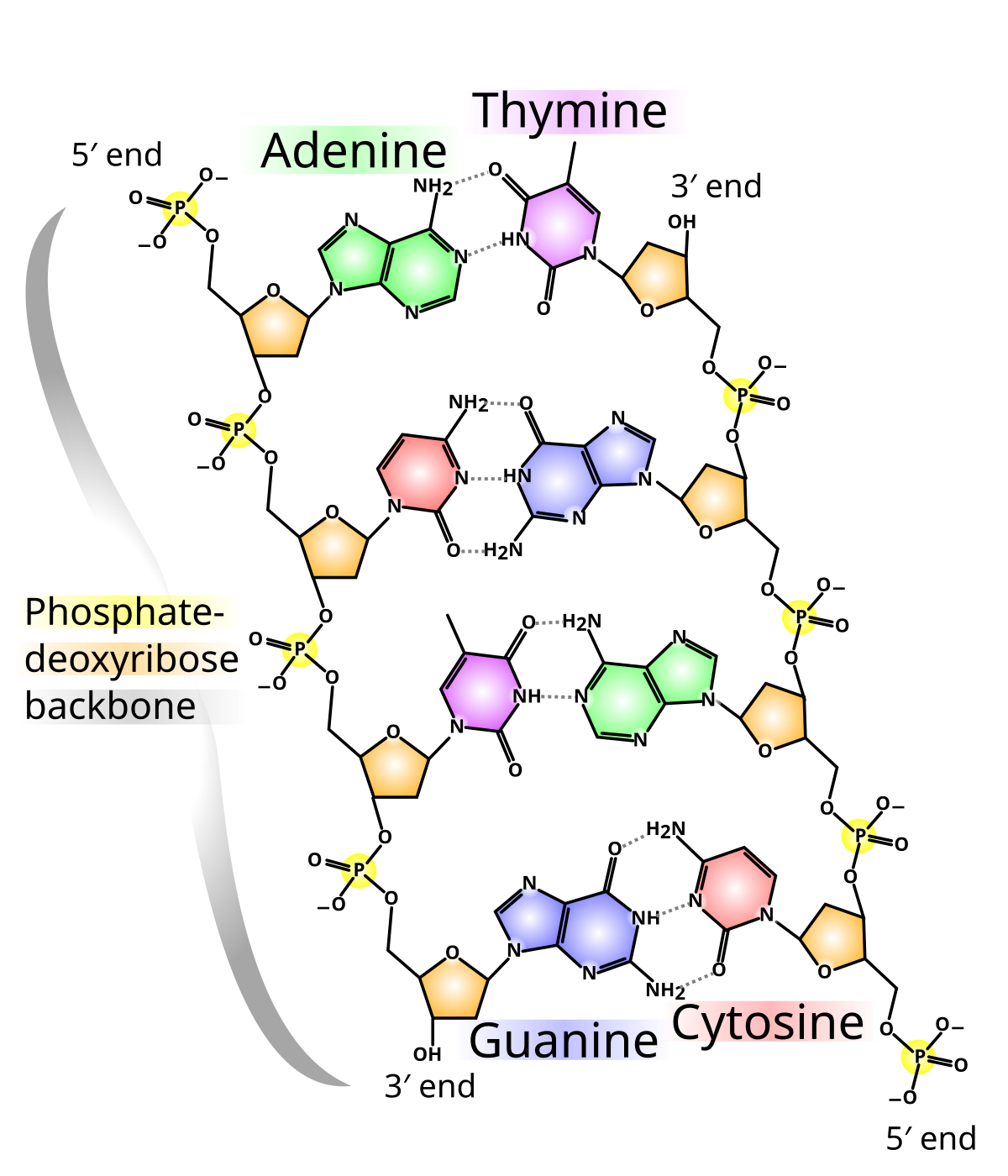



File Dna Chemical Structure Svg Wikipedia




Dna Vs Rna Vector Illustration Educational Genetic Acid Explanation Royalty Free Cliparts Vectors And Stock Illustration Image
0519 · Watson and Crick model of DNA provides one of the best ways to demonstrate the structure of doublehelix DNAA DNA is a polymer composed by the combination of several monomer units (deoxyribonucleotides) linked by the phosphodiester bondIn the discovery of DNA, many scientists have contextualized the structure of DNA, its components and composition etcWatson and Crick gathered all available data in an attempt to develop a model of DNA structure Franklin took Xray diffraction photomicrographs of crystalline DNA extract, the key to the puzzle The data known at the time was that DNA was a long molecule, proteins were helically coiled (as determined by the work of Linus Pauling), Chargaff's base data, and the xray diffraction data ofDNA replication occurs only during the S phase of the cell cycle A scientist uses radioactive isotopes to label a doublestranded molecule of DNA Then the DNA undergoes replication in a nonradioactive medium Where are the two original radioactive strands of DNA?




Dna And Chromosomes Biol 230 Master Confluence




File Dna Structure And Bases Pl Svg Wikimedia Commons
DNA Model Grading Rubric Name(s)_____ Create a 3D model of the DNA molecule using recycled/found materials Use this as a guideline to make sure your project is done correctlyDNA is a double helical structure consisting of two long strands, coiled around a ventral axis This structure was discovered by Watson and Crick Each strand is a polynucleotide chain, composed of many nucleotides Each is formed by a pentose, deoxyribose sugar, aHOW TO MAKE A DNA MODEL USING PIPECLEANERS PROJECT DEMONSTRATION If playback doesn't begin shortly, try restarting your device Videos you




Make A Candy Dna Model Youtube



The Structure Of Dna
Small molecule labeling generally refers to any form of crosslinking or modification whose purpose is to conjugate a chemical group (eg fluorescent and chemiluminescent compounds, redox labels, biotins, haptens, nanoparticles or user supplied compounds having target functional groups) with target molecules such as proteins, nucleic acids and other biomolecules throughRighthanded) helical chains or strands ("the double helix"), coiled around an axis to form a double helix of A° of diameter The two strands are antiparallel (id est their 5'>3' orientations are in opposite direction) The general appearance of the polymere4 If a DNA molecule is found to be composed of 40% thymine, what percentage of guanine would be expected 10% % 40% 80% 5 The enzymes that break hydrogen bonds and unwind DNA are primers forks helicases polymerases 6 DNA replication results in 2 completely new DNA molecules 2 DNA molecules that each contain a strand of the original




With The Help Of A Neat And Labelled Diagram Describe Watson And Crick S Model Of Dna Biology Shaalaa Com




Solved Lab 16 Dna Structure And Function Exercise 1 Dna Chegg Com
Figure 1 DNA molecule sketch (5 points) Hold the model from the top, and gently twist the DNA ladder to the right You should see that the DNA looks like a spiral staircase The model now represents the helical structure of DNA Your teacher may instruct you to take your model and attach all the DNA models together to make a longer strand of DNA · The important features of WatsonCrick model or double helix model of DNA are as follows 1 The DNA molecule consists of two polynucleotide chains or strands that spirally twisted around each other and coiled around a common axis to form a righthanded doublehelix 2Choose the fully assembled, semispacefilling 17 or 36 base pair models for a visually stunning display or use in large lecture halls You may also have seen this model on the "Big Bang Theory"The set designers were able to modify our support stand so that they could stack 2 models




Diagram Introduction Genetics Labeling The Diagrams Answer Key Full Version Hd Quality Answer Key Thadiagram Assimss It
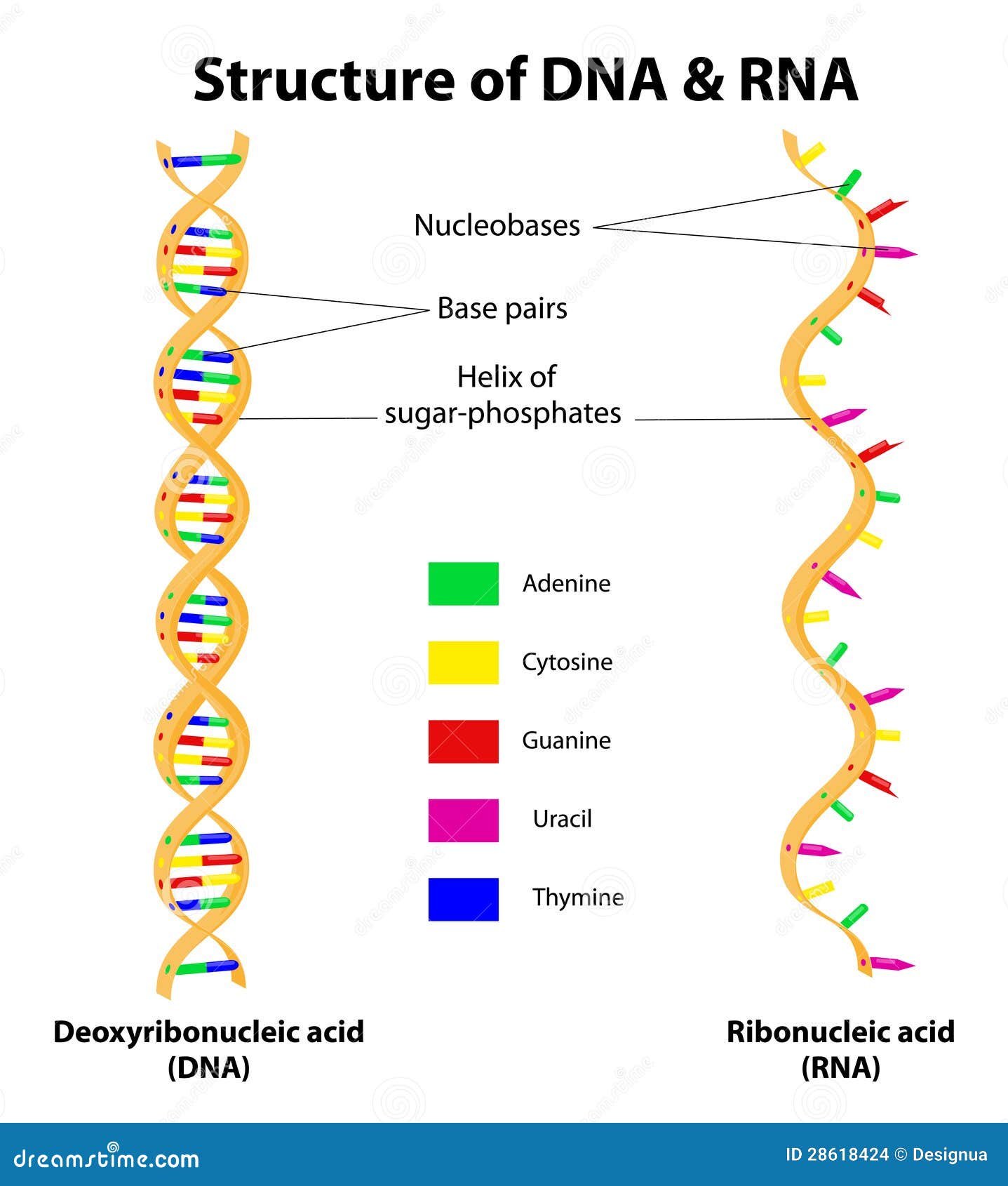



Structure Dna And Rna Molecule Vector Stock Vector Illustration Of Human Education
· DNA Model The threedimensional structure of DNA, first proposed by James D Watson and Francis H C Crick in 1953, consists of two long helical strands that are coiled around a common axis to form a double helix Each DNA molecule is comprised of two biopolymer strands coiling around each other1412 · The paper clips represent 'five prime' and 'three prime' which indicate the number of carbons in the DNA's sugar backbone These two are the distinctive ends of the nucleic acids The black dots represent the bonds of sugar and phosphate which make up the nucleotides and show the genetic code · This page, looking at the structure of DNA, is the first in a sequence of pages leading on to how DNA replicates (makes copies of) itself, and then to how information stored in DNA is used to make protein molecules This material is aimed at 16 18 year old chemistry students If you are interested



Structure Of Dna And Rna
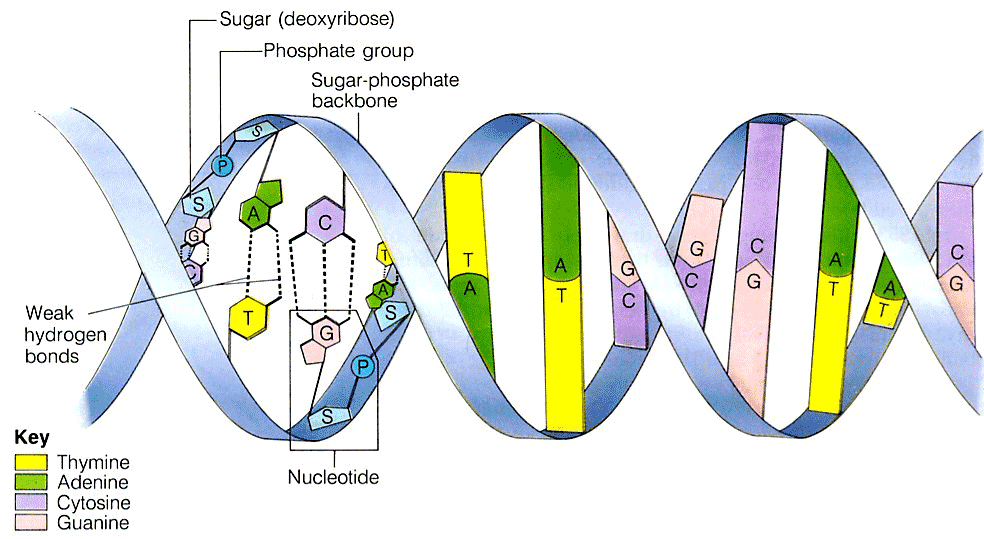



Dna Structure Quotes Quotesgram
Model of DNA a A spacefilling model of DNA b The two strands of the molecule are antiparallel— that is, the sugarphosphates are oriented in different directions The 5' end of one strand is opposite the 3' end of the other strand c Diagram of DNA double helix shows that the molecule resembles a twisted ladder or a spiralThis time we will show you some awesome pictures we have collected in case you need more example, today we will see more concerning DNA Model Cut Out Worksheets By the way, about DNA Model Cut Out Worksheets, below we can see various similar pictures to inform you more dna model worksheet, labeled dna model worksheet and dna paper modelII2 DNA molecule DNA is made of two ("duplex DNA") dextrogyre (like a screw;
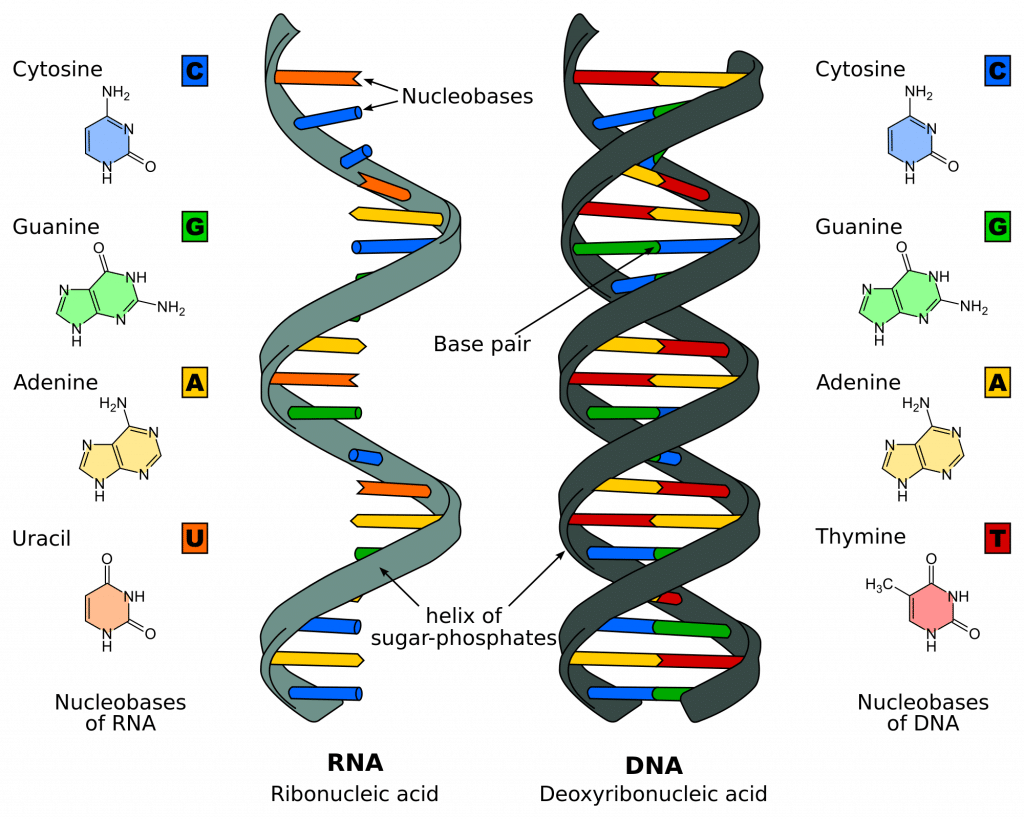



Dna Replication Structure Stages Of Replication Teachmephyiology
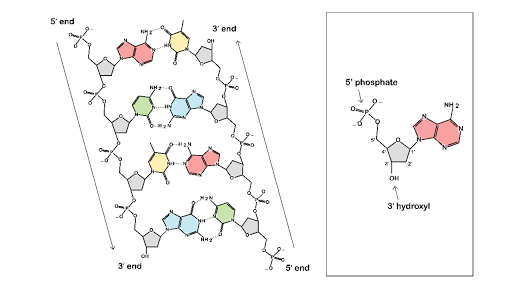



Discovery Of The Structure Of Dna Article Khan Academy
According to this model original double helix of parental DNA molecule is conserved Two strands of a double helix of DNA remains joined to each other and individual chains remain intact Hydrogen bonds between DNA strands remain stable and original parental double helix acts as a template for the formation of entirely new daughter DNA molecule in which all nucleotides subunits are{Label Gallery} Get some ideas to make labels for bottles, jars, packages, products, boxes or classroom activities for free An easy and convenient way to make label is to generate some ideas first You should make a label that represents your brand and creativity, at the same time you shouldn't forget the main purpose of the label · In addition, DNA molecules can be very long Stretched endtoend, the DNA molecules in a single human cell would come to a length of about 2 meters Thus, the DNA for a cell must be packaged in a very ordered way to fit and function within a structure (the cell) that is not visible to the naked eye




3 3 Dna Structure Ppt Video Online Download



The Structure Of Dna
Place your backbone labeled "DNA1" or "DN" (depending on which you used to make your model) in front of you b Follow the rules of base pairing to make your mRNA copy of the DNA code by lining up colored marshmallows with their appropriate match 3 The chemical bases of mRNA are also attached to a backbone as in DNA aAnd the two newlysynthesized strands, known asNew DNA strands, which then form a second DNA helix The end point is two double helices, one containing only old DNA and one containing only new DNA This hypothesis was found to be not correct Semiconservative replication is a form of DNA synthesis in which the two template strands separate and each dictates the synthesis of a new strand
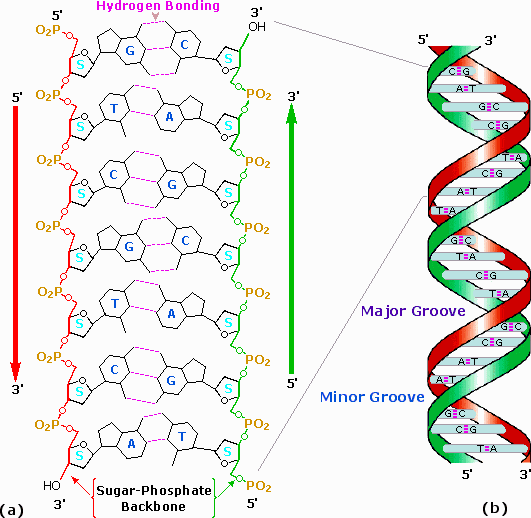



Nucleic Acids




Universal Genetic Code This Diagram Shows A Dna Molecule Which Has A Double Helex Structure It Carries The Universal Dna Model Project Dna Project Dna Model
5) Construct the right side of your DNA molecule by putting together in sequence a cytosine, thymine, guanine and adenine nucleotideSee next page 6) Complete the left side of the DNA ladder by adding complementary nucleotides or nucleotides that fit Your finished model should resemble a ladder See next pageDNA Structure Gumdrop Modeling Teacher Version DNA is one of the most important molecules in our bodies It's like a recipe book with the instructions for making us who we are Because each cell must have a copy of these instructions, cells need to replicate, or make a copy of their DNA, each time they divide In this 4part lab,335 Draw and label a simple diagram of the molecular structure of DNAHere I demonstrate drawing the structure of DNA You don't need to be an artist, its
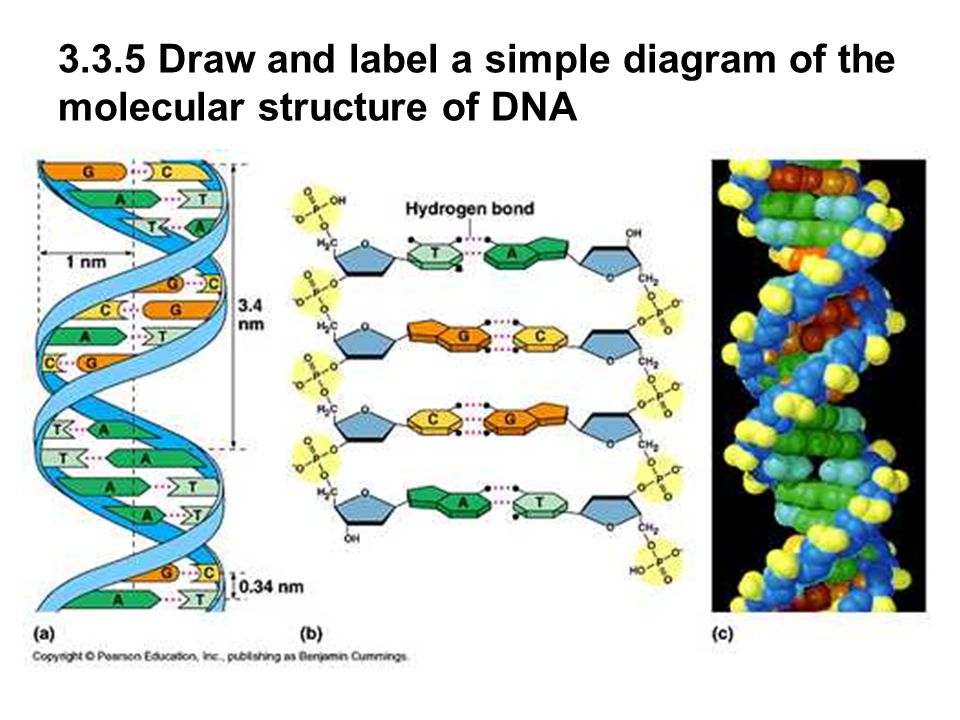



3 3 And 3 4 Dna Structure And Replication Ppt Video Online Download
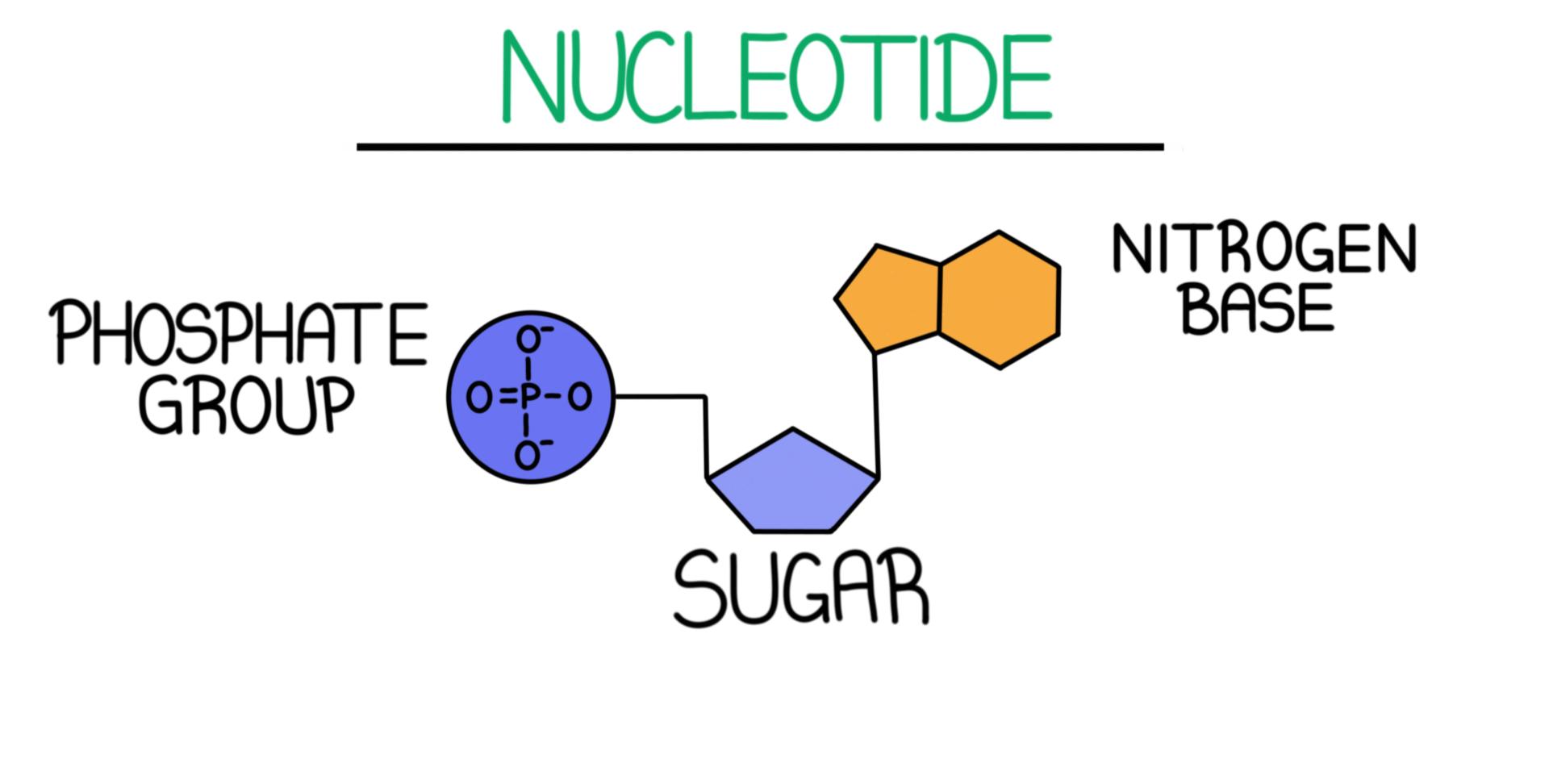



Dna Structure Overview Diagrams Expii
· Models of Replication There were three models of replication possible from such a scheme conservative, semiconservative, and dispersive In conservative replication, the two original DNA strands, known as the parental strands, would rebasepair with each other after being used as templates to synthesize new strands;Carefully twist your DNA molecule so that it looks like a double helix 6 Label your model Straighten your paper clips Make a "flag" out of small pieces of masking tape and attach them to each paper clip Stick them into parts of your model andDNA is the information molecule It stores instructions for making other large molecules, called proteins These instructions are stored inside each of your cells, distributed among 46 long structures called chromosomes These chromosomes are made up of thousands of shorter segments of DNA, called genes




Dna Molecule Label Diagram Quizlet




Watson And Crick Dna Model Molecular Biology Microbe Notes
· A readily available resource to create a model for the study of DNA is the human hand Students can recognize how structure and function of nucleotides determine structure and function of the DNA molecule by labeling parts of a gloved hand with the parts of a DNA moleculeThe first recombinant DNA molecule was created by Paul Berg in 1972 when he combined DNA from the monkey virus SV40 with that of the lambda phage 9 Experiments on hereditary material during the time of the Hershey–Chase experiment often used bacteriophages as a model organismWorking with Molecular Genetics Chapter 5, DNA Replication I, v2 3 shifted to grow in media containing the highly abundant, light isotope of nitrogen, 14N, in the NH4Cl, so that newly synthesized DNA would have a "light" densityThe labeled, heavy (old)



Dna Structure And Sequencing Boundless Biology




Dna History By Jaron Surtees Infographic
This figure is a diagram of a short stretch of a DNA molecule which is unwound and flattened for clarity The boxed area at the lower left encloses one nucleotide Each nucleotide is itself make of three subunits A five carbon sugar called deoxyribose (Labeled S)



Introduction
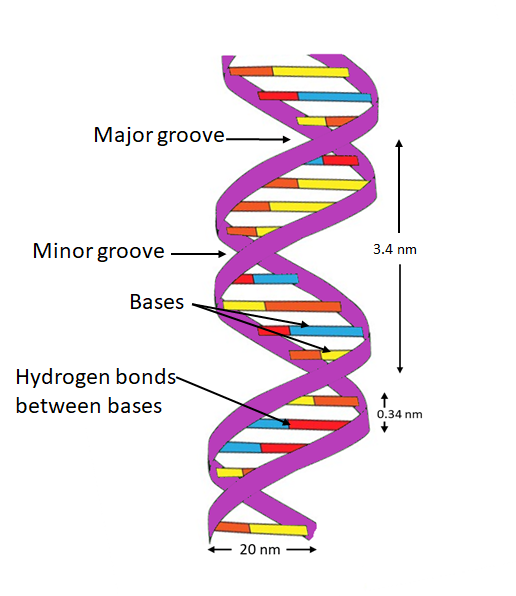



Explain The Double Helix Structure Of Dna With A Labeled Class 10 Biology Cbse



The Structure Of Dna
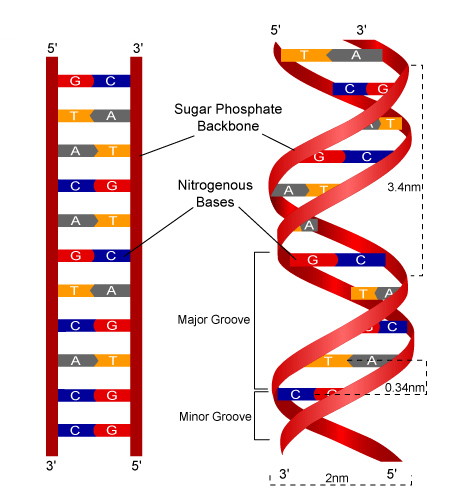



Dna Structure




Dna Structure An Overview Sciencedirect Topics
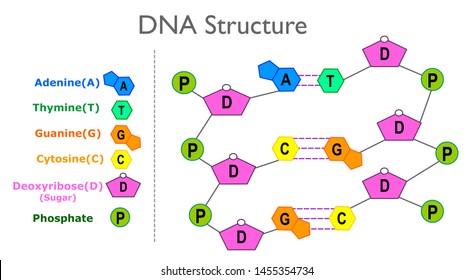



Nitrogenous Base Images Stock Photos Vectors Shutterstock




Dna Structure Labeling Diagram Quizlet
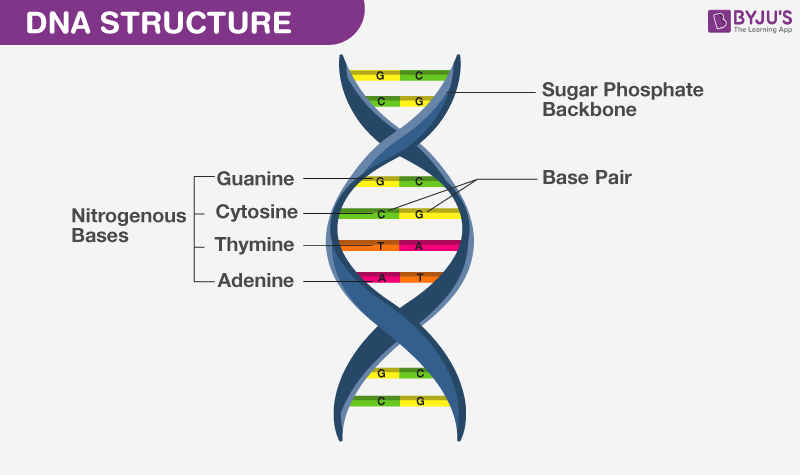



What Is Dna Meaning Dna Types Structure And Functions
/DNAstructure-58c233583df78c353c23dbe6.jpg)



Nucleic Acids Function Examples And Monomers




Storing Genetic Information Biology For Non Majors I




Dna The Molecular Basis Of Mutations



Dna Molecule Drawing At Getdrawings Free Download




Notes Dna Structure Topic 2 Nucleic Acids Dna
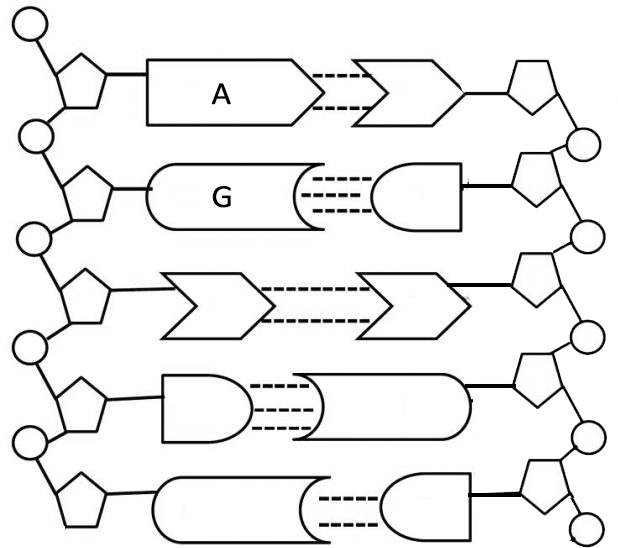



Review The Structure Of Dna



Dna Model Biology Junction



3 3 Dna Structure Bioninja



Dna And Molecular Genetics




Dna Structure And Sequencing Boundless Biology
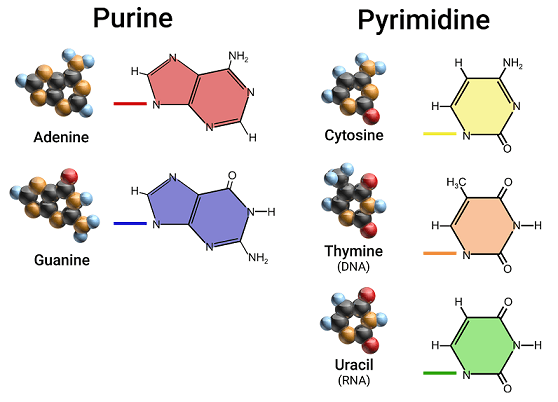



Dna Structure Overview Diagrams Expii
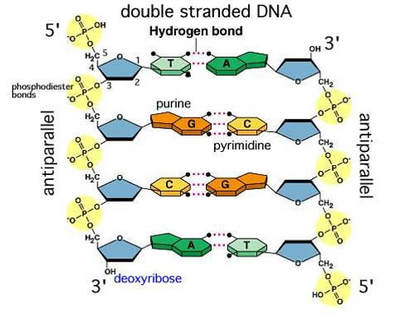



2 6 Dna Rna Structure



4 3 Dna Structure And Replication Biology Libretexts



The Structure Of Dna
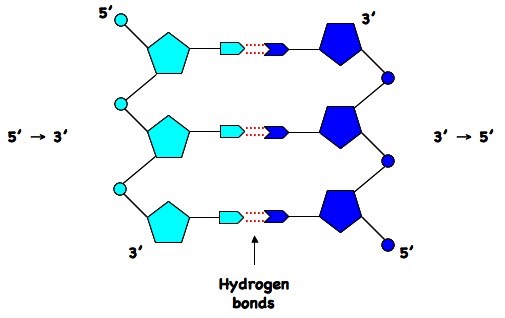



Dna Structure Bioninja




Dna Explained Structure And Function
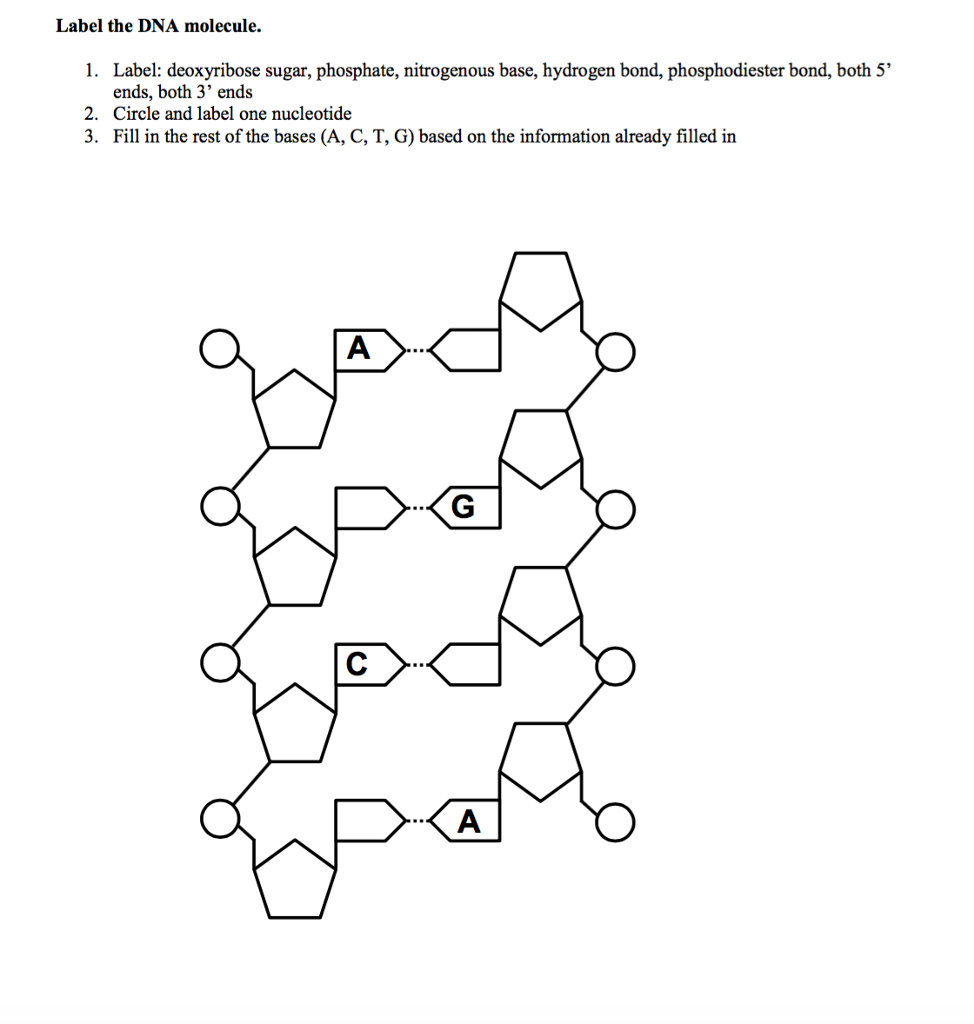



Solved Label The Dna Molecule Label Deoxyribose Sugar Chegg Com
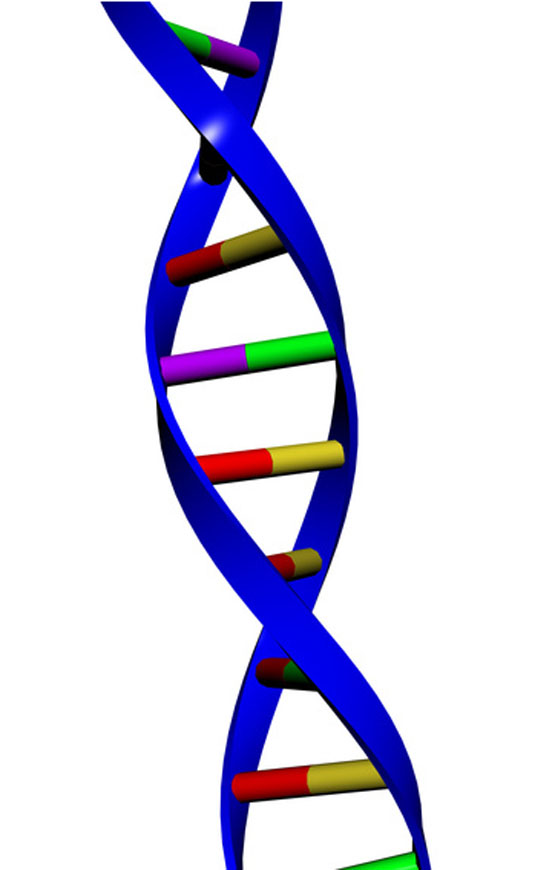



What Makes Up The Backbone Of Dna Science Lesson Project
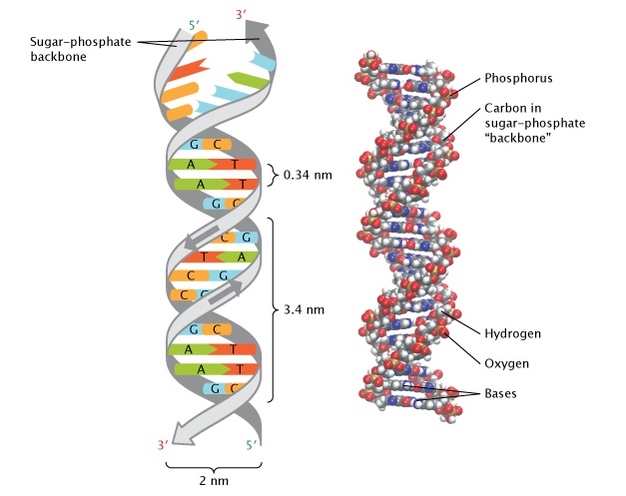



Discovery Of Dna Double Helix Watson And Crick Learn Science At Scitable
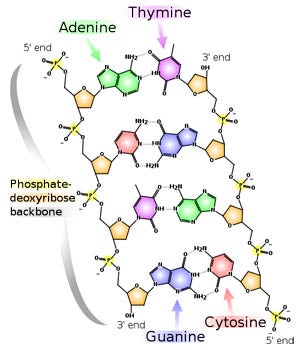



Dna Structure And Shape Ask A Biologist
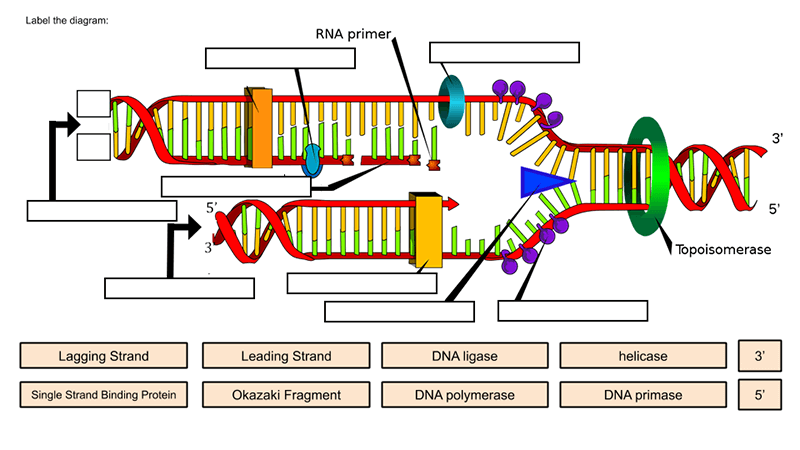



Dna Drag And Drop
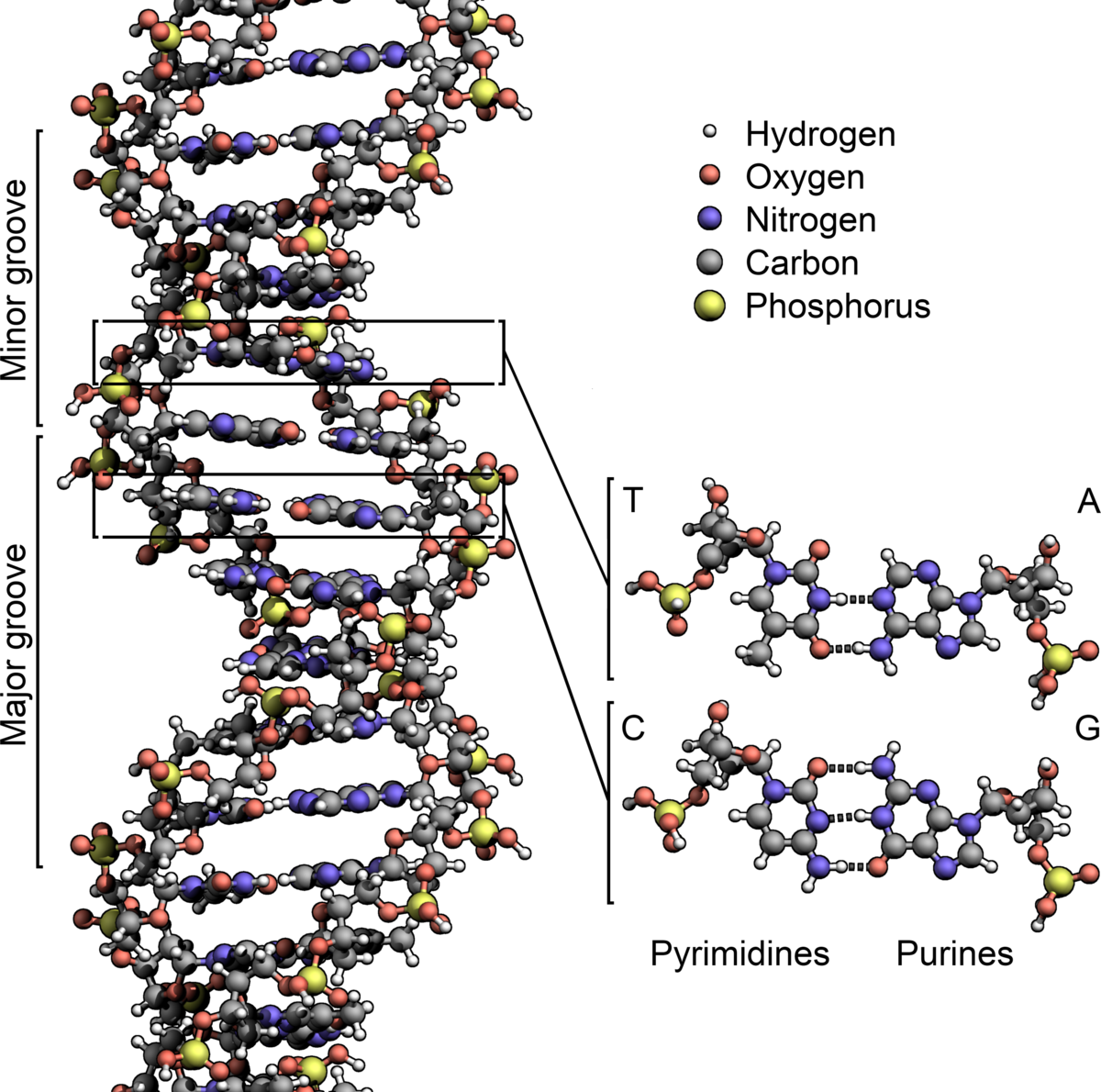



Dna Wikipedia




Counting Individual Dna Molecules By The Stochastic Attachment Of Diverse Labels Pnas
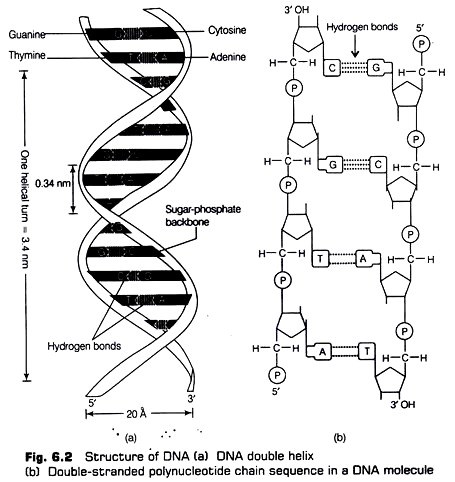



33 Dna Structure Label Labels Design Ideas
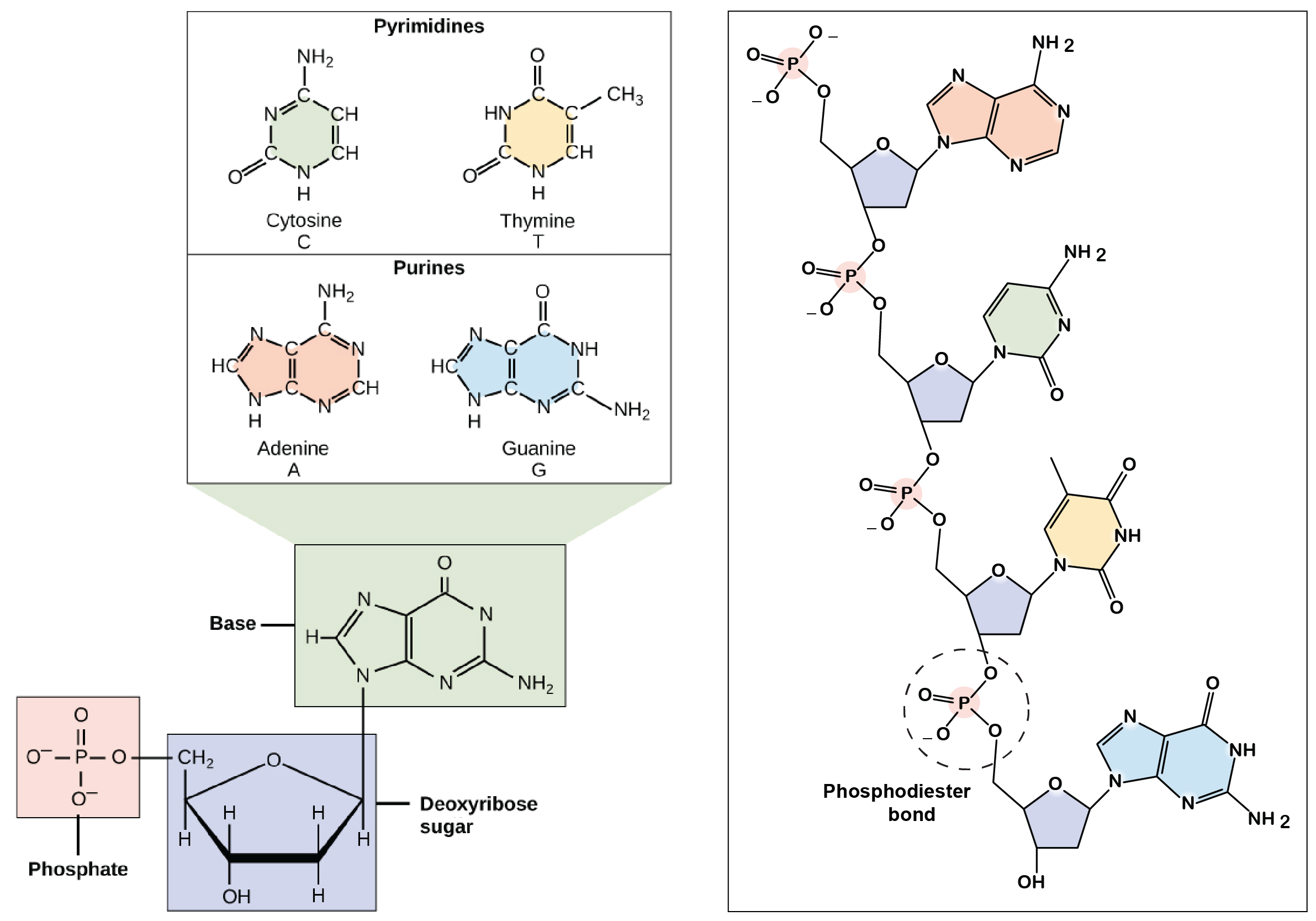



Discovery Of The Structure Of Dna Article Khan Academy



Cells And Dna A Basic Breakdown



Dna And Molecular Genetics




Dna Function Structure With Diagram Article Khan Academy
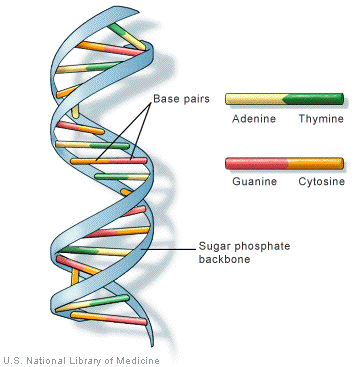



Dna Structure
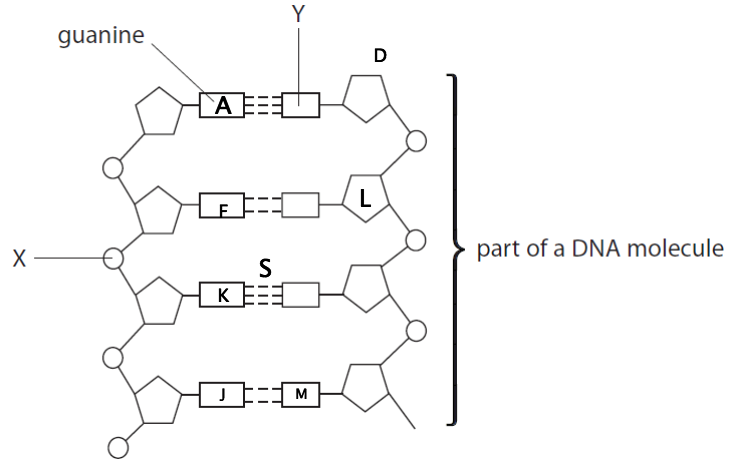



Dna Quiz




12 Dna Model Ideas Dna Model Dna Dna Model Project




Dna Structure Flashcards Quizlet



9 1 The Structure Of Dna Concepts Of Biology 1st Canadian Edition




Dna Structure And Function Dna Structure And Function




Models Of Dna Structure Aleysa Franz




Models Of Dna Structure Biology Blog




Pin On Genetic Genealogy
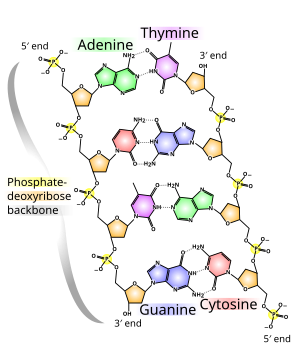



Dna Wikipedia




Discovery Of Dna Double Helix Watson And Crick Learn Science At Scitable




Structure And Function Of Dna Microbiology




The Dna Structure Salient Features Dna Helix Packaging Videos Q A




Dna Definition Discovery Function Bases Facts Structure Britannica
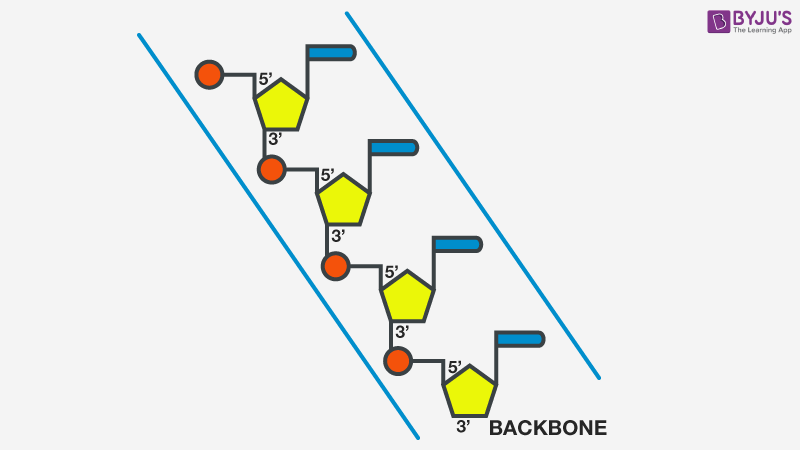



What Is Dna Meaning Dna Types Structure And Functions
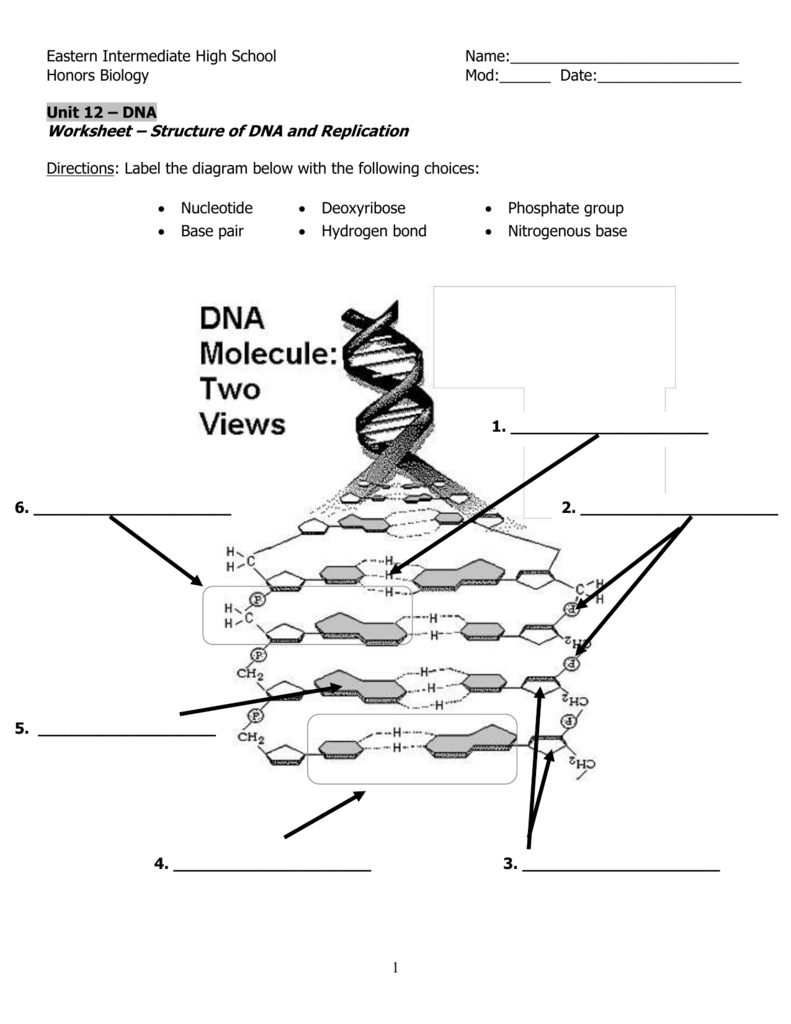



Dna Structure And Replication Worksheet



The Structure Of Dna
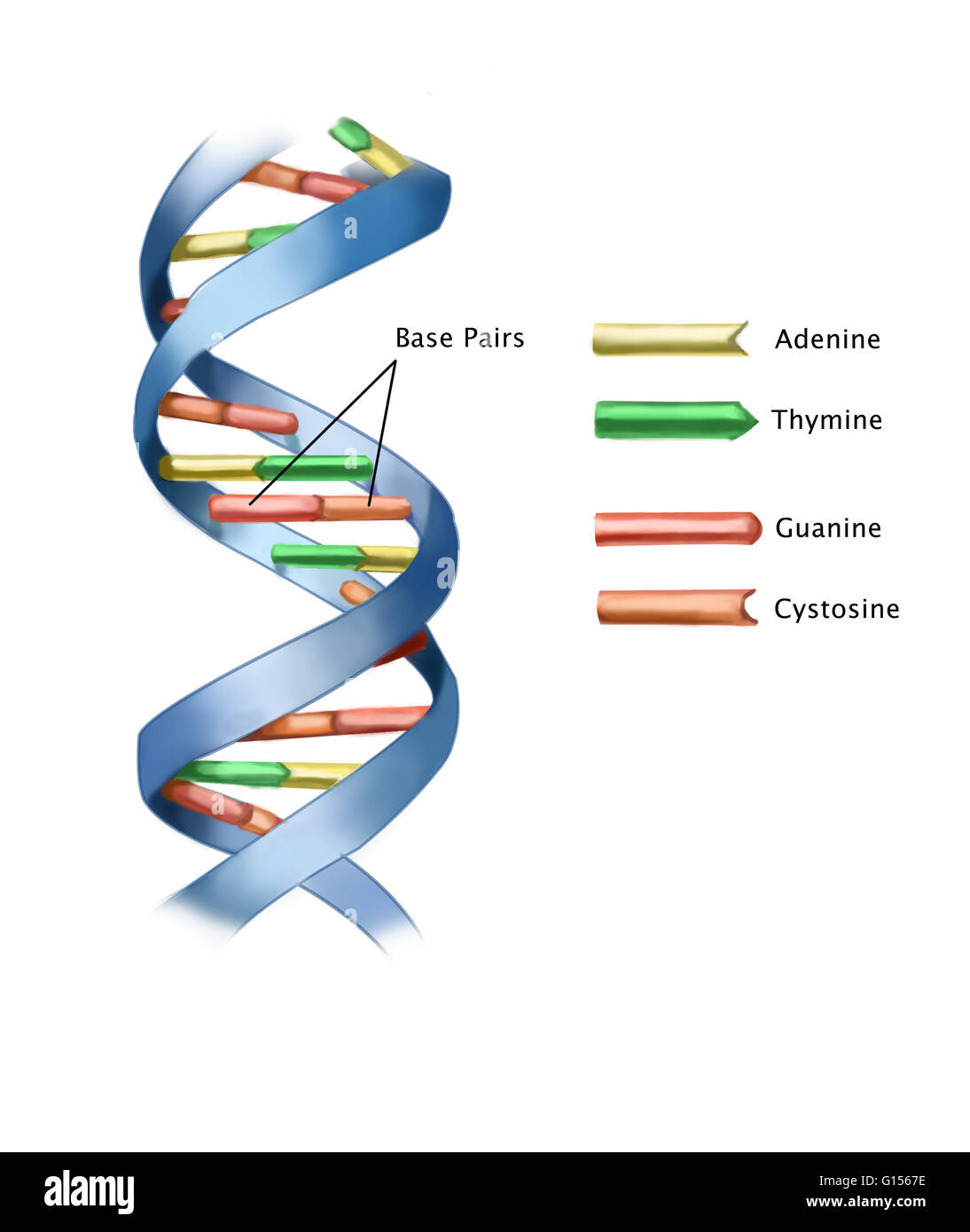



Illustration Of Part Of A Strand Of Dna Deoxyribonucleic Acid Featuring Labeled Base Pairs The Dna Molecule Has A Double Helix Arrangement Being Composed Of Two Right Handed Spiral Strands Of Sugar Phosphates




Dna Vs Rna 5 Key Differences And Comparison Technology Networks
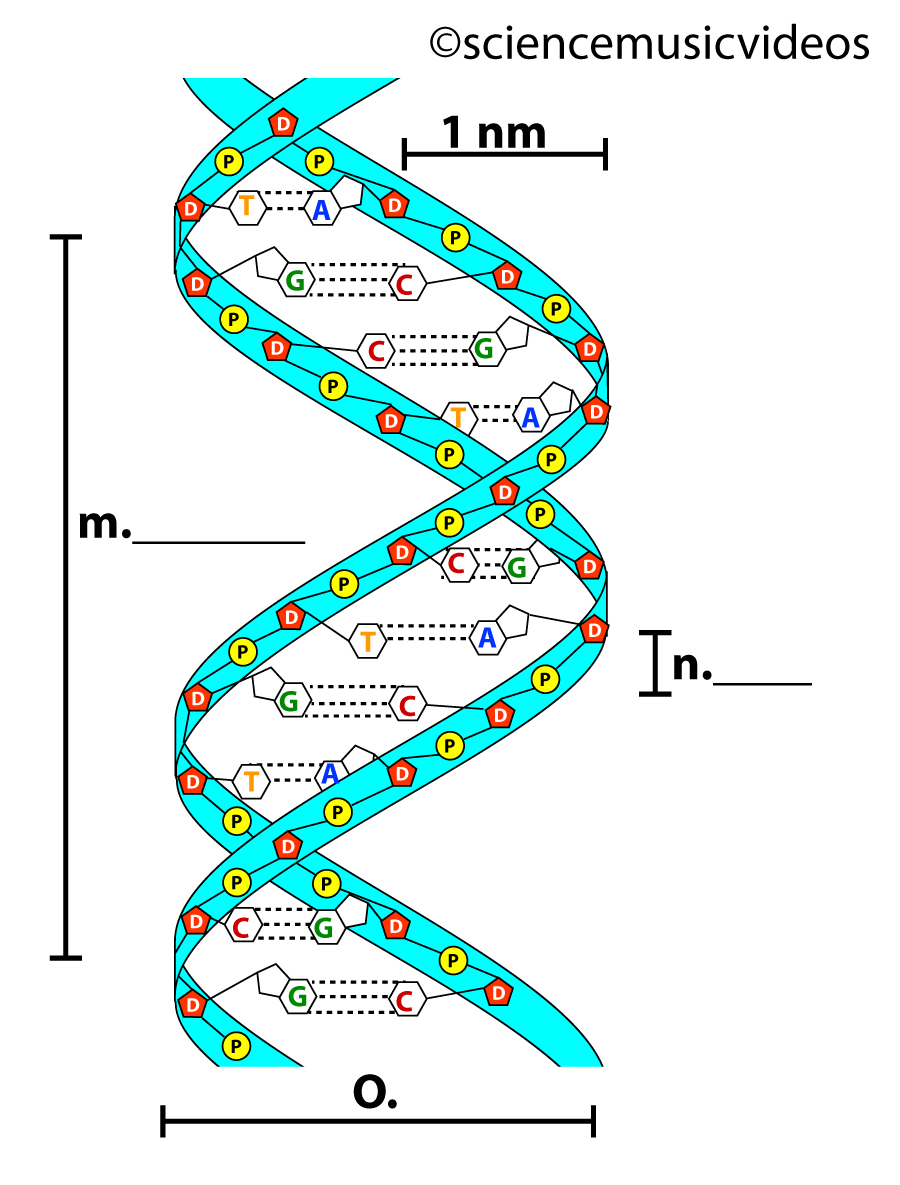



Dna Structure Hs Tutorial Sciencemusicvideos
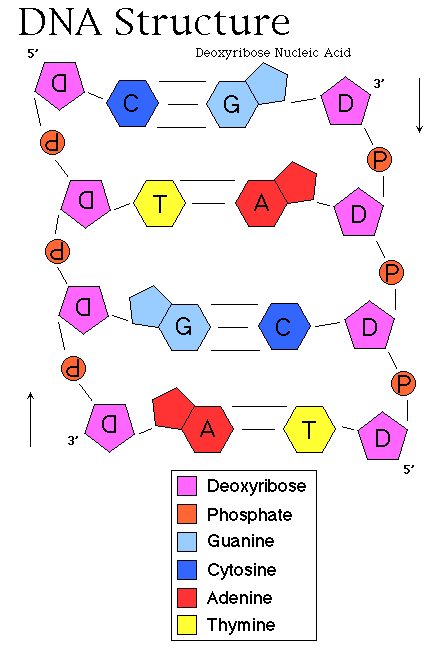



Dna Structure
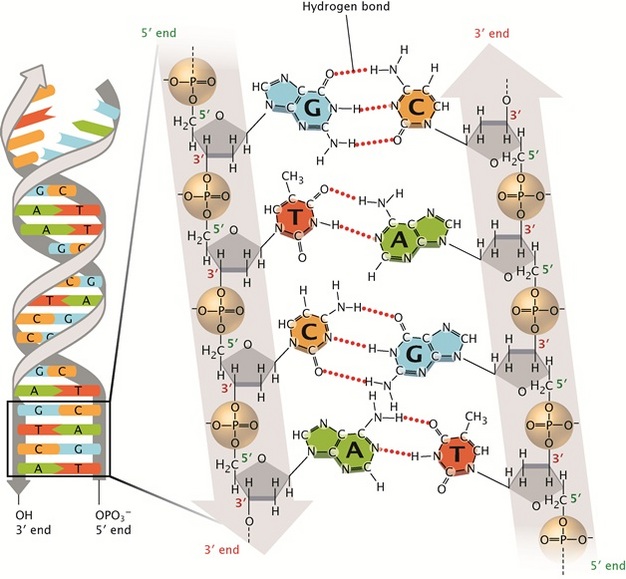



Discovery Of Dna Double Helix Watson And Crick Learn Science At Scitable




Make A Candy Dna Model Stem Activity



Print Page




Image Dna Structure
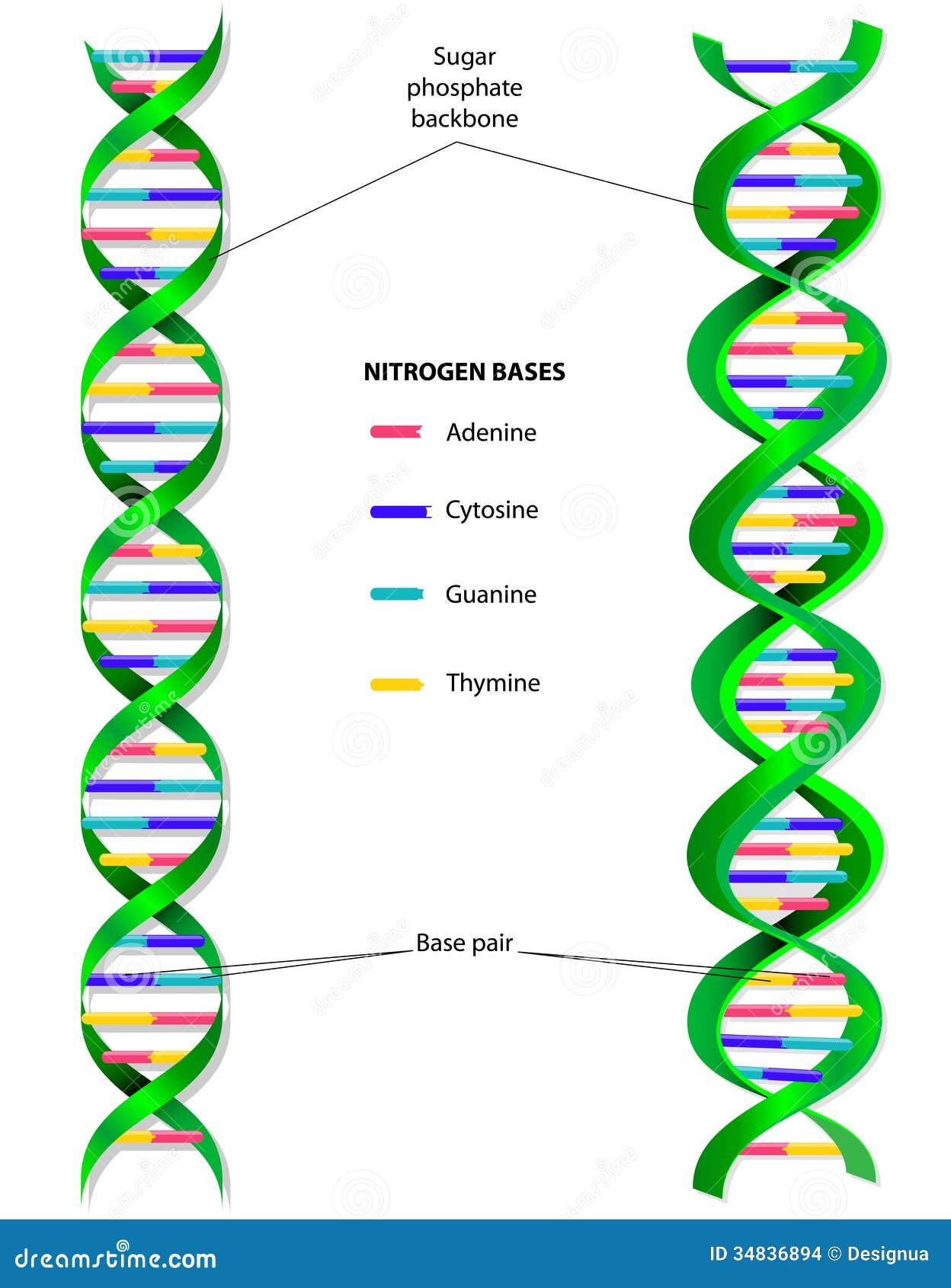



Dna Molecule Vector Diagram Stock Vector Illustration Of Chromosome Medical 3464
/dna-versus-rna-608191_sketch_Final-54acdd8f8af04c73817e8811c32905fa.png)



The Differences Between Dna And Rna




Dna Structure An Overview Sciencedirect Topics




Structure And Function Of Dna Microbiology
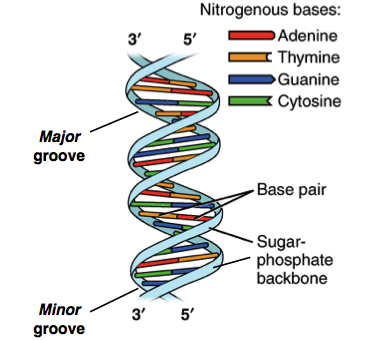



Dna Structure And Replication Review Article Khan Academy
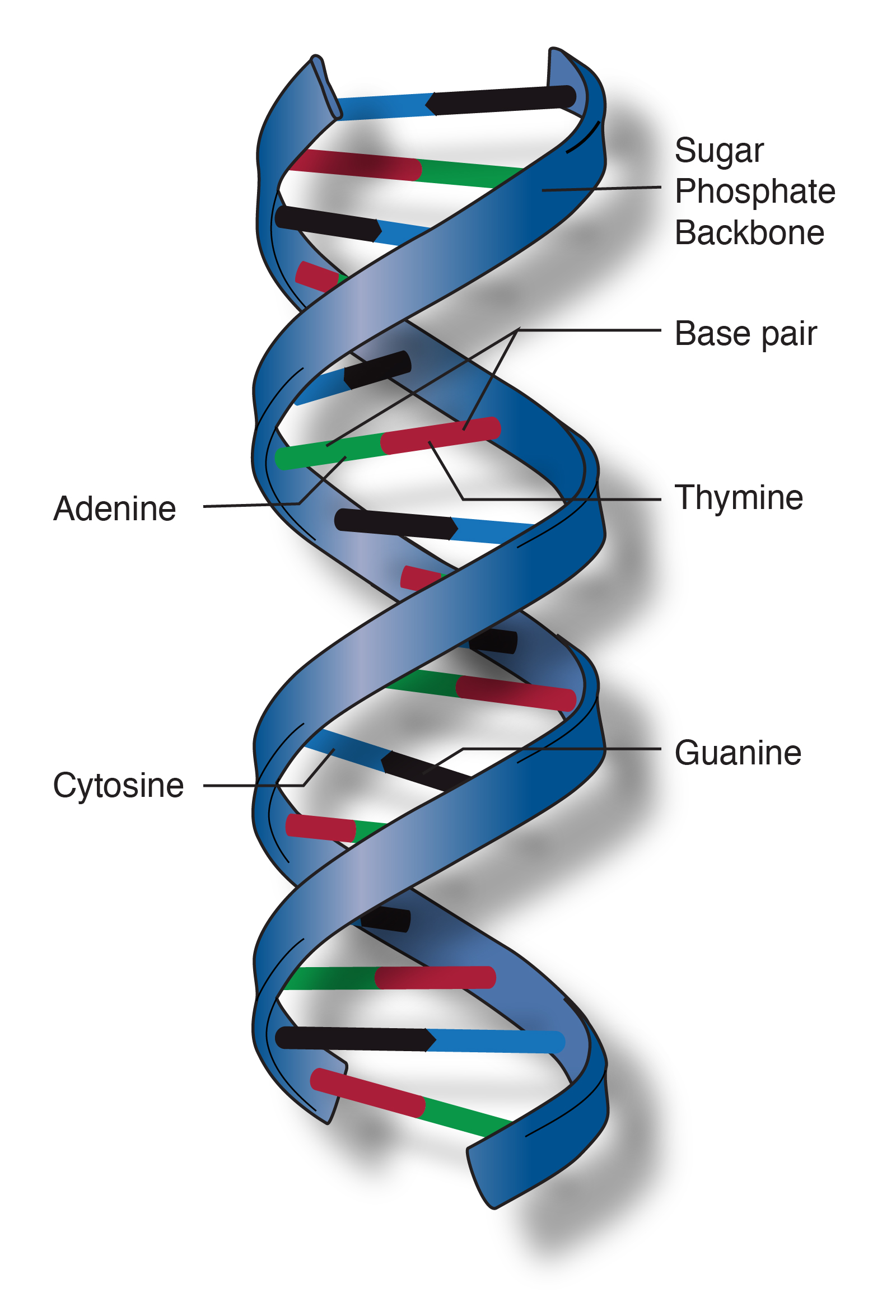



Dna Double Helix
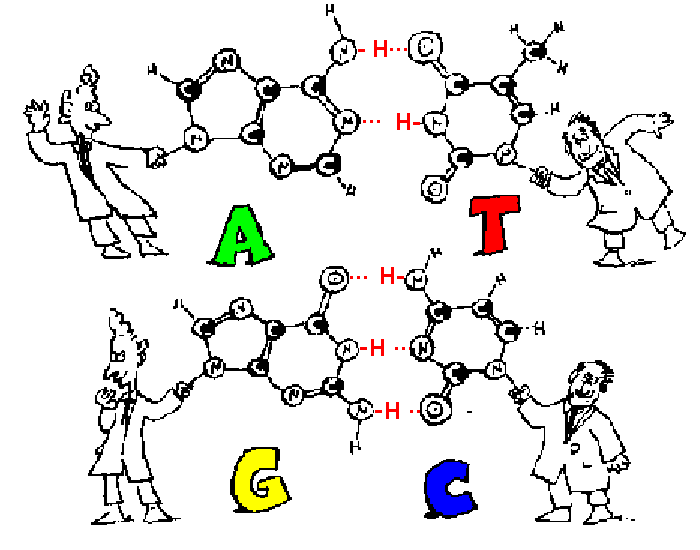



Watson Crick Structure Of Dna



Dna Molecule Two Views
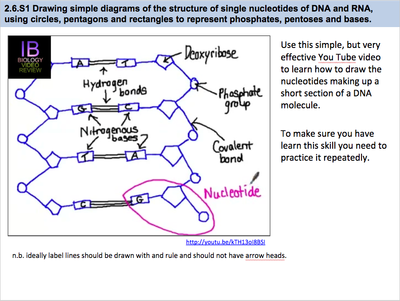



2 6 Dna Rna Structure




The Chemical Structure Of Dna Compound Interest




Molecular Structure Of Nucleic Acids A Structure For Deoxyribose Nucleic Acid Wikipedia
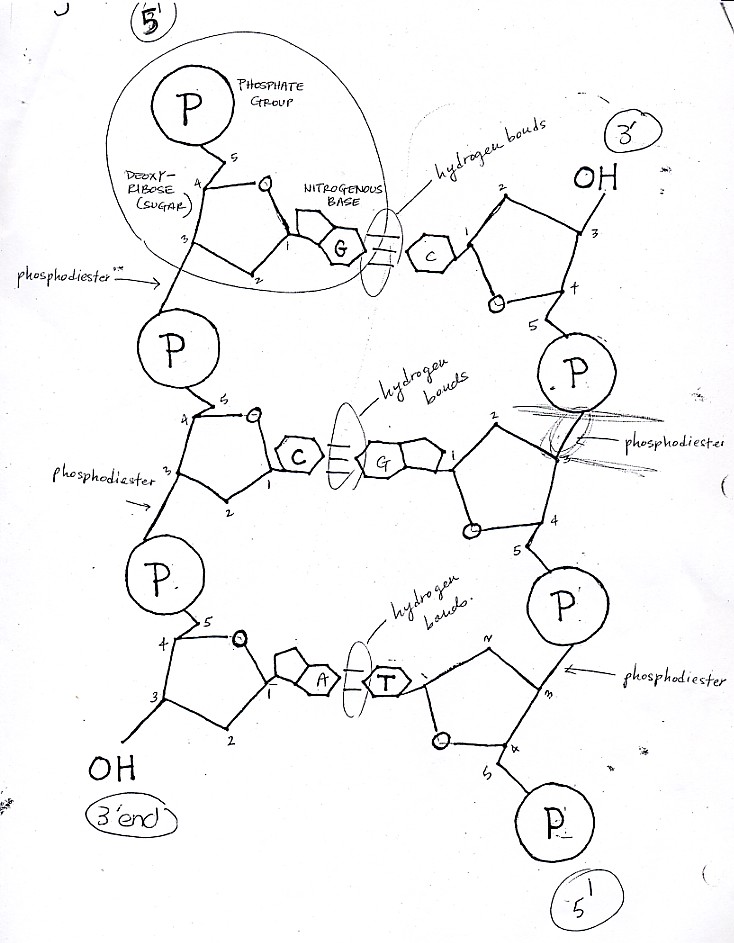



Bioexcel 190 Molecular Genetics Key
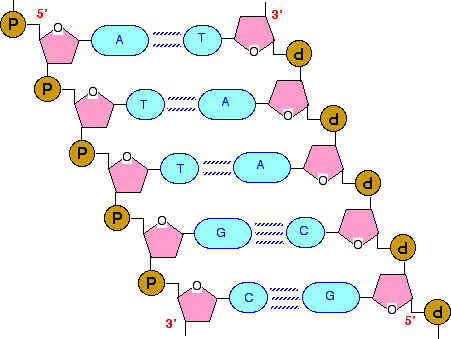



Dna Structure


